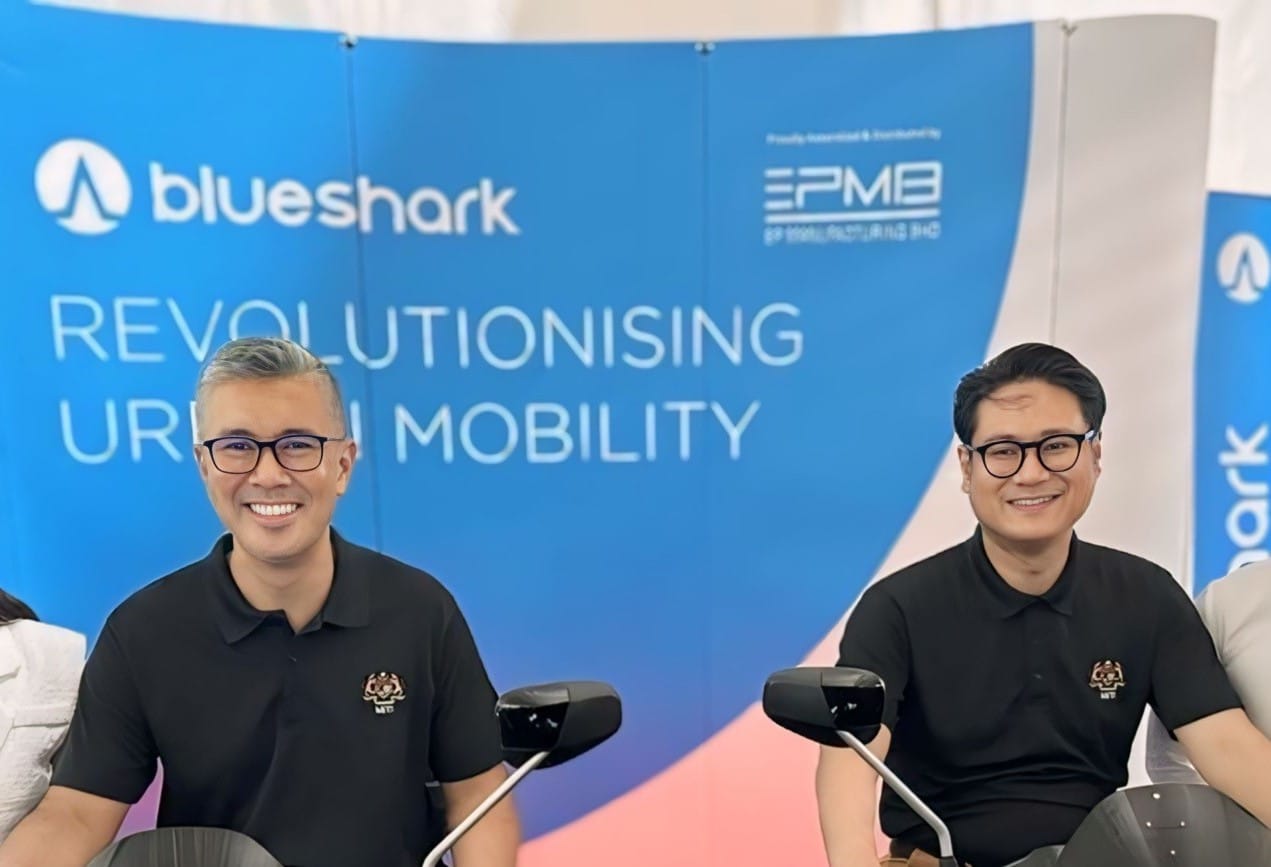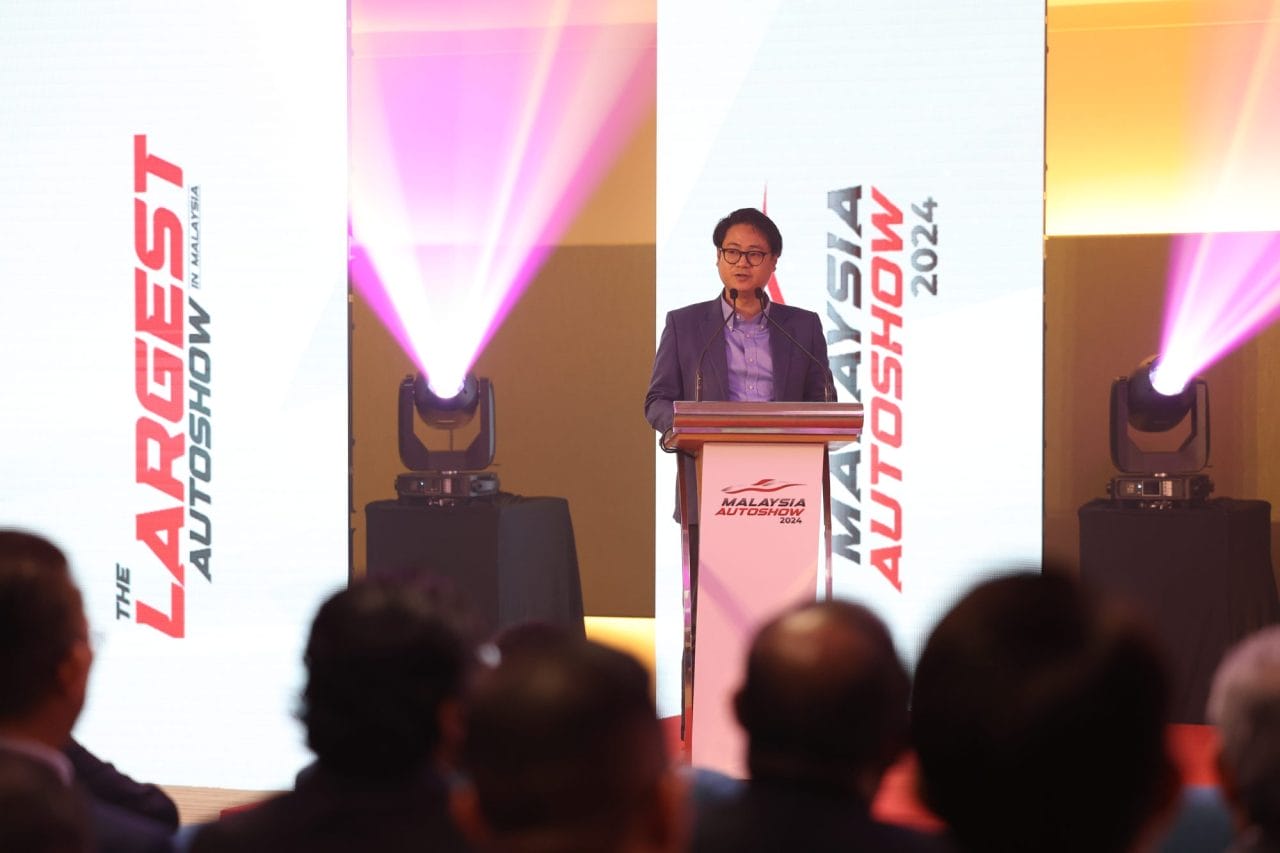The Malaysia Automotive Robotics & IoT Institute, also known as MARii, is an agency operating under the Minister of Investment, Trade, and Industry (MITI). It was founded in 2010 with the aim of improving the technological advancements, human capital, and overall ecosystem of the automotive industry in the country.
As Malaysia was already a key player in the sector among its peers, the aim was to seek further refinement, enhancement, and even possibly expansion as a regional hub.
With the sector once again playing a major role in various scopes including in electrification, BusinessToday caught up with MARii’s Chief Executive Officer Azrul Reza Aziz to know more about the agency’s plan moving forward and the mandate by the MITI for the automotive sector.
Undertaking such a massive task is no mean feat, but Azrul -seems to be up to the challenge in-fact he said he was honoured to serve as CEO and that his immediate response was to ensure the agency covers all stages of the vehicle lifecycle in anticipation of the team knowing everything there is to know about a vehicle.
The Journey Ahead
“Since day one, I have focused on advancing the Malaysian automotive landscape. Our key initiative centres on promoting innovation and adopting emerging technologies within the industry, particularly in response to the global shift toward electric vehicles (EVs)’’ he added.
Being the buzz revolving electric vehicles, inexplicably MARii is spearheading some of the major policies surrounding this exciting area. Already Malaysia is a major player in both EV adoption and assembly with the likes of Geely, Chery all showing interest in establishing a manufacturing footprint in the country.
This is where MARii leads in its initiatives to encourage the development and adoption of electric and hybrid vehicles guided by the National Automotive Policy 2020 (NAP2020). The overarching goal is to position Malaysia as a hub for Energy Efficient Vehicles (EEV) in the digital industrial transformation era, emphasising Next Generation Vehicles (NxGV), Industrial Revolution 4.0 (IR 4.0), and Mobility-as-a-Service (MaaS).
“This effort aims to achieve balanced growth and our ambitious target of carbon neutrality by 2050. Our initiatives include raising awareness, fostering adoption, and embracing Environmental, Social, and Governance (ESG) principles through the National Industry ESG Framework (i-ESG). In general, the global automotive industry is currently in a transition phase to introduce and manufacture electric vehicles (EV) in line with current technological developments and the world’s need to urgently reduce carbon emissions.
“Specifically on electric mobility, MARii, together with MITI, launched the MARiiCas scheme on December 8, 2023, incentivising the use of electric motorcycles through rebates of up to RM2,400 for individuals with an annual income below RM120,000. ’’
“The launch of MARiiCas today comes at an opportune moment, and I believe this initiative has the potential to significantly enhance public willingness to transition from Internal Combustion Engine (ICE) vehicles to Electric Vehicles (EVs)’’ Azrul said.
The Malaysian Government’s commitment to further increase the level of people’s acceptance to switch to electric-based vehicles is comprehensive, which means that the benefits of EV mobility are not only limited to cars, but also include electric motorcycles which are also an important means of transport for the people.
Driving EV Forward
According to EU stats, automobiles are among the biggest carbon emission emitters accounting for over 60% of total CO2, undoubtedly if Malaysia wants to achieve its Net Zero goals by 2050, the transition of electric is imperative.
Encouragingly, the country is embarking on major policy changes with also introduction of new ones that will see the automotive sector transforming into a more sustainable centric and make EV’s within reach for the man on the street.
Through the recently launched New Industrial Master Plan 2030 (NIMP 2030), the country is focusing on the supply-side development in the EV value chain, including the development of affordable EVs. Although the sector’s development is parked under the mission towards net zero, the different segments of the EV value chain also provide opportunities for this sector to engage with other missions as well, said Azrul.
As announce by the YB Senator Tengku Datuk Seri Utama Zafrul Tengku Abdul Aziz. MITI Minister, Perodua’s first electric vehicle which will be developed as an affordable model potentially priced under the RM100,000 mark, will enter mass production by the end of 2025.
“Other than that, I also spearheaded a series of strategic collaborations and partnerships with key players both within the country and on the international stage”. Azrul quipped.
“These collaborations include partnership with significant entities such as Kementerian Pendidikan Malaysia, Jabatan Pembangunan Sumber Manusia Negeri Sabah (JPSM), China Automotive Technology & Research Center (CATARC), Institut Otomotif Indonesia (IOI), Autodesk Asia, ACOTech & Geno’’
Furthermore, Azrul has led MARii’s impactful initiative for regional Electric Vehicle (EV) development within the ASEAN community, solidifying collaborations with Institut Otomotif Indonesia (IOI) and exploring potential partnerships with the Thailand Automotive Institute (TAI).
This marked the early phase of conducting influential roundtable discussions on EV for regional development, aiming to facilitate mutually beneficial dialogues within the ASEAN region’s automotive sector. MARii is also looking at the workforce within the manufacturing sector, especially in the automotive industry.
Azrul added “As we navigate the dynamic landscape of the automotive sector, it is imperative to recognize the interconnectedness of nations within the ASEAN region. MARii vision extends beyond national borders, emphasizing collaboration and synergy among ASEAN member states to complement each other’s strengths and address shared challenges. ASEAN should be complementing instead of competing.”
Adopting The Future Today
At present the automotive industry contributes an estimated 4% of Malaysia’s annual GDP, or around RM64.5 billion. Malaysia’s automotive industry is the third largest in Southeast Asia now and 23rd largest globally with Total Industry Volume (TIV) of 799,731 units in 2023.
Having established itself as a key player in the automotive industry since the 1980, Malaysia is no stranger to the evolution and rapid changes developing in the space.
With a solid foundation and sound fundamentals, Malaysia is well-positioned for the transformative shift by adopting digitisation and new business models. There is already an impetus in areas such as autonomous, electrification, and connectivity, technology that will redefine the landscape of the industry.
MARii said it is intensifying efforts through research and development, fostering collaborations with local and international partners to drive innovation in these technologies. It is also proactively engaging with the government to shape supportive policies that incentivise sustainable practices and attract investments.
Among the programmes initiated to advance mobility technologies include the EV Interoperability Centre (EVIC) – EV Management System (EVMS): e-Mobility Service Provider (EMSP).
Other advancement revolves around the smart charging system by using blockchain technology. MARii said the objective is to address grid congestion issues and enhance the efficiency of electric vehicle charging. With more electric vehicles, there’s pressure on the power grid, leading to crowded charging stations and grid issues. Using blockchain-based smart charging infrastructure will address these challenges, making charging more available and secure.
MARii CEO added from an investment perspective, Malaysia is also looking at the development of critical components such as the Battery Management System (BMS), Radio Detection and Ranging (RADAR), Light Detection and Ranging (LIDAR), on board charging, charging infrastructure, and modular-based battery swapping technology, which could potentially complete the supply chain ecosystem.
Expanding The EV Industry Through Policies
Assessing the success of Malaysia’s vehicles (EVs) may be premature at this stage, as it is a long-term strategy, and the technology is still evolving. However, there are positive indicators that suggest we are moving in the right direction, Azrul noted.
He explained, for instance, in 2023, Malaysia reached a significant milestone with xEVs accounting for 4.5% of the total TIV, compared to 2.6% in 2022 and a mere 0.6% in 2021.
And with the momentum witnessed in the market, coupled with the introduction of new EV models by OEMs and the entry of new players, achieving the national target of 20% TIV by 2030, 50% by 2040 and 80% by 2050 is highly possible. With another 6 years ahead of us, MARii said it is confident Malaysia to meet and even exceed the national targets. The government has introduced various policies to promote EV adoption, not only NAP2020 but the New Industrial Master Plan 2030 (NIMP 2030) and National Energy Transition Roadmap (NETR).
All these policies are seen as catalysts for EV adoption and expansion, in fact, EVs are listed in NIMP2030 as a key growth driver towards decarbonizing Malaysia’s manufacturing industry.
This mission also complements NETR, which has set a target of a 45% reduction in carbon emissions by 2030, and carbon neutrality by 2050, emphasizing the importance of the “well to tank” to minimize environmental impact across the energy supply chain.
However, Azrul said achieving targets for EV adoption requires a collective effort from the public and private sectors. Regular assessment and adaptation of NAP2020 may be necessary to address evolving challenges and opportunities in the electric mobility landscape, and to keep it aligned with current developments happening locally and globally.
EVs currently stand as the optimal choice for reducing carbon emissions and meeting our targets. While we continue developing EV technology, it does not deter the government’s strategic approach to other technologies such as hydrogen.
The Well To Wheel Approach
With all the focus and push towards EV development and adoption, an area that most often is not discussed is after market or areas such as power generation, manufacturing, service life, and disposal.
The aftermarket sector encompasses a wide range of products and services, including maintenance, repair, customization, and upgrades and even disposal of the EVs. As EV adoption grows, so does the demand for aftermarket solutions. This presents both opportunities and challenges for businesses and policymakers.
MARii which has been looking at all product cycle and post, impact is working closely with the Department of Environment (DOE) to oversee Authorised Automotive Treatment Facility (AATF) in Malaysia. AATF addresses the issues concerning abandoned vehicles where parts are reused, recycled, or disposal.
The increased focus on EVs in Malaysia, could lead to significant advancements in battery technology, charging infrastructure, and overall automotive efficiency, positioning Malaysia at the forefront of the global EV market. Ideally, fostering job creation and economic growth in the transition to electric mobility.
The agency said it is ready for technology transfer as several centres of excellence such as the National Design Centre, National Digital Centre, MARii Simulation and Analysis Centre (MARSAC), MARii Design & Engineering Prototyping Centre, the National Emission Testing Center (NETC) and the MARii Academy of Technology can also be utilised to improve local engineering capabilities in the field of Research and Development (R&D), testing and development of Automotive High Technology & EEV technology.
Programmes to Drive Interest
As the industry shifts towards electrification, there will be a surge in demand for everything from component suppliers, workshops, skilled professionals, battery technologies, and related advancements.
MARii cognisant of this said has developed a vendor development program that provides technical assistance and consultancy to improve the competency of local automotive suppliers to be more competitive and sustainable at the global level. For instance, the development of critical components and Electrical & Electronics (E&E) products related to automotive.
Moreover, it is also working together with the Department of Skills Development under the Human Resources Ministry, in shaping the industry’s future by developing National Occupational Skills Standards (NOSS)’’
Additionally, as an appointed Industry Lead Body (ILB), MARii is at the forefront of advancing the automotive industry, with a focus on creating NOSS for Electric and Hybrid Car Service, as well as Electric Vehicle (EV) Charging Stations.
Bring all this together and showcasing them in efforts to create more awareness of the country’s automotive development, MARii kicked off Malaysia Autoshow (MAS), a yearly event where the stakeholders and the public can come together to witness firsthand Malaysia’s vibrant mobility advancement.
The success of the event was evident when it recorded a potential sale of RM1.4 billion in 2023.
With a massive mandate weighing over his shoulders, how does Azrul lead MARii and the change that is approaching the industry, to this the composed CEO said “My pivotal influence has been the dynamic ethos of startups. I appreciate their resilience and adaptability to change, qualities that have left a lasting impression on my approach to leadership.”











